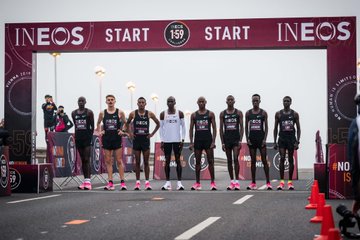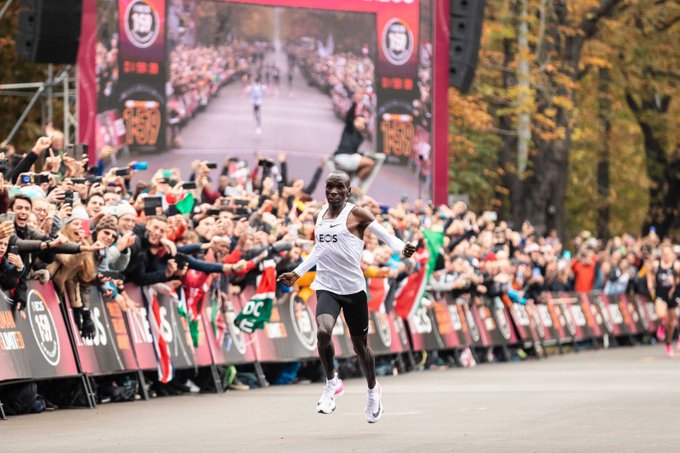Despite breaking a world record of the first human on earth to run for 42Kms for only one hour and 59 minutes, Kenya’s marathon champion Eliud Kipchoge did not make it straight into the Guinness Book of World Records.

However, Guinness Book of World Records will only document his 1:59:40 in Vienna but not record it as a set record.
Before the 2019 INEOS 1:59 Challenge, Kipchoge in 2018 had set a World Marathon Record in time of 2:01:39 in Berlin Marathon.
Below are key reasons which disqualified Kipchoge from entering into Guinness Book of World Records
- Kipchoge needed to call upon International Association of Athletics Federation (IAAF) who determines several key factors such as time and distance for a World Record recognition
- IAAF also must verify and certify route taken during the race, besides IAAF demands that the race must have at least three competitors
- During his race, Kipchoge was competing with time during the famous “INEOS 1:59 Challenge”
- IAAF also allows pace setters, but they must be controlled unlike Kipchoge’s pace setters who could roll-back into the track race
- To ensure he followed the right track, his feet were monitored by a camera fitted on a moving vehicle, and the results were analysed and channeled back to Kipchoge to improve his speed and race, an idea that IAAF is totally against it
- Kipchoge had the luxury of drinking water from any point along the race as well as taking energy drinks along the race, this was closely monitored by aerobic professionals who would then advise him on the second course of intake
- There were no strict anti-doping controls during the race in Vienna
- Also, athletes are not supposed to be paced by a vehicle with a motor, as of Kipchoge’s case
- The track route of the 34 year old Kipchoge was carefully simulated in a computer animation, so as to ensure that he run under 2 hours.
- His track, as AFP argues, was largely flat with closely controlled weather patterns
Best records under 42KMs Marathon race
Below are past records held by various male marathoners in 2000s
1. 2003: Paul Tergat (Kenya) – the 2003 Berlin Marathon in 2:04:55.
2. 2007: Ethiopia’s Haile Gebrselassie – Berlin course in 2:04:26.
3. 2008: Gebrselassie – 2:03:59.
4. 2011: Patrick Makau (Kenya) – 2:03:38.
5. 2013: Fellow Kenyan Wilson Kipsang – 2:03:23.
6. 2014: Dennis Kipruto Kimetto (Kenya) – the Berlin Marathon in 2:02:57.
7. 2018: Eliud Kipchoge – in 2:01:39.














